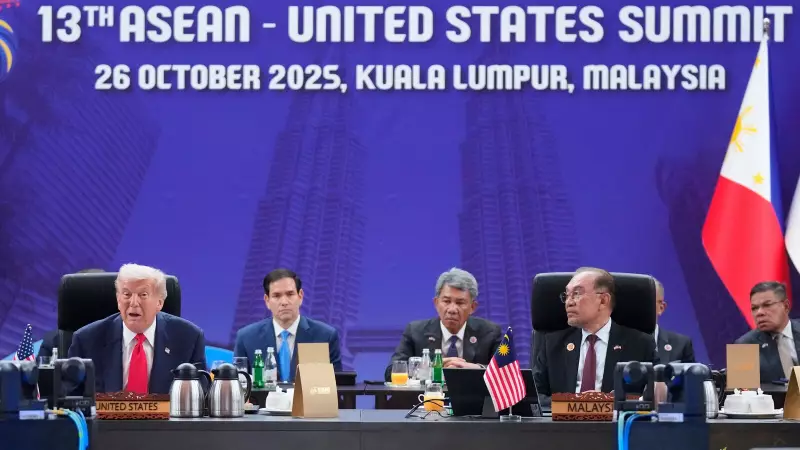
In a significant geopolitical maneuver, the United States has forged critical minerals partnerships with three key Southeast Asian nations—Malaysia, Thailand, and Cambodia—marking a decisive shift in global supply chain dynamics away from Chinese dominance.
Strategic Counter to China's Mineral Monopoly
The newly signed agreements represent Washington's most assertive move yet to diversify its sources of essential minerals and rare earth elements, commodities crucial for everything from electric vehicles and smartphones to advanced military hardware. For decades, China has maintained a near-stranglehold on these resources, controlling approximately 80-90% of global rare earth processing capacity.
"This isn't just about trade—it's about national security and technological sovereignty," noted a senior administration official familiar with the negotiations. "By securing alternative supply chains, we're insulating our economy from potential disruptions and geopolitical pressures."
Southeast Asia's Rising Mineral Significance
The three partner nations bring substantial mineral resources to the table:
- Malaysia possesses significant rare earth element deposits and established processing facilities
- Thailand offers substantial reserves of tungsten, tantalum, and other critical minerals
- Cambodia emerges as a growing source of rare earth elements crucial for permanent magnets
These partnerships come amid escalating trade tensions, with former President Donald Trump threatening potentially massive tariff increases on Chinese imports should he return to power. The timing suggests a coordinated strategy to build alternative supply networks before potential trade conflicts intensify.
Economic and Geopolitical Implications
The agreements extend beyond simple purchase arrangements, encompassing:
- Technology transfer for mineral processing and refinement
- Joint ventures between American and Southeast Asian companies
- Infrastructure development for mining and transportation
- Environmental and labor standards alignment
This development signals a fundamental restructuring of global critical minerals supply chains, potentially reducing China's leverage in future trade negotiations and technological competition. The move also positions Southeast Asia as an increasingly vital player in the clean energy transition, where these minerals are indispensable.
Industry analysts suggest these agreements could accelerate investment in Southeast Asia's mining sector while providing American manufacturers with more secure, diversified sources of essential materials. However, questions remain about whether these new supply chains can scale quickly enough to meaningfully challenge China's established dominance in the near term.





